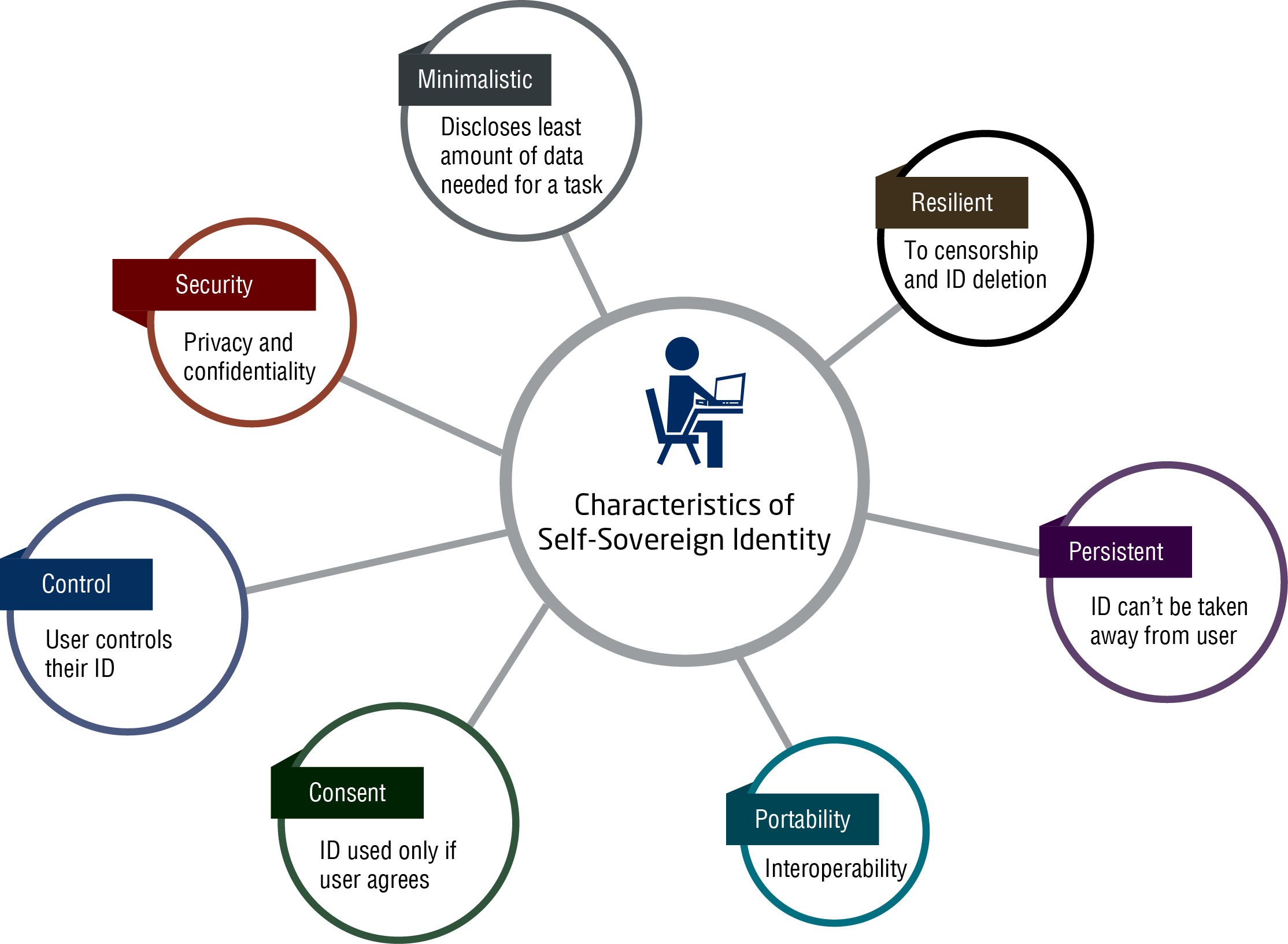The Impact of Blockchain on Digital Identity Verification

- Understanding Blockchain Technology
- The Evolution of Digital Identity Verification
- Challenges and Opportunities in Identity Verification
- Enhancing Security with Blockchain
- The Role of Decentralization in Identity Verification
- Future Trends in Blockchain and Identity Verification
Understanding Blockchain Technology
Blockchain technology is a decentralized, distributed ledger system that securely records transactions across a network of computers. Each transaction is stored in a “block” that is linked to the previous block, forming a chain of blocks – hence the name “blockchain.” This technology ensures transparency, security, and immutability of data, making it an ideal solution for digital identity verification.
One of the key features of blockchain technology is its ability to provide a tamper-proof record of transactions. Once a block is added to the chain, it cannot be altered without changing all subsequent blocks, making it nearly impossible to manipulate the data. This feature is crucial for digital identity verification, as it ensures that personal information remains secure and unaltered.
Another important aspect of blockchain technology is its decentralized nature. Unlike traditional centralized systems, where data is stored on a single server controlled by a central authority, blockchain stores data across a network of computers, known as nodes. This decentralized structure eliminates the need for a central point of control, reducing the risk of data breaches and unauthorized access.
Blockchain technology also utilizes cryptographic techniques to secure data and verify the identity of users. Each user on the blockchain network has a unique cryptographic key that is used to sign transactions and prove ownership of assets. This ensures that only authorized users can access and update their personal information, enhancing the security of digital identity verification processes.
In conclusion, blockchain technology has the potential to revolutionize digital identity verification by providing a secure, transparent, and decentralized solution for storing and managing personal information. By leveraging the unique features of blockchain, organizations can enhance the security and privacy of their identity verification processes, ultimately improving trust and reliability in the digital world.
The Evolution of Digital Identity Verification
The evolution of digital identity verification has been greatly impacted by the introduction of blockchain technology. Blockchain has revolutionized the way identities are verified online, providing a secure and decentralized method for storing and verifying personal information. This technology has enabled individuals to have more control over their own identities, reducing the risk of identity theft and fraud.
One of the key benefits of using blockchain for digital identity verification is the increased security it provides. By storing identity information in a decentralized and encrypted manner, blockchain makes it much more difficult for hackers to access and manipulate personal data. This has led to a significant reduction in identity theft cases, providing individuals with greater peace of mind when sharing their information online.
Furthermore, blockchain has also improved the efficiency of digital identity verification processes. By streamlining the verification process and eliminating the need for third-party intermediaries, blockchain has made it quicker and easier for individuals to verify their identities online. This has not only improved the user experience but has also reduced costs for businesses that rely on identity verification services.
Overall, the evolution of digital identity verification through the use of blockchain technology has had a profound impact on the way personal information is stored and verified online. With increased security, efficiency, and control over one’s own identity, blockchain has become a game-changer in the world of digital identity verification.
Challenges and Opportunities in Identity Verification
When it comes to digital identity verification, there are both challenges and opportunities that come with the implementation of blockchain technology. One of the main challenges is the issue of privacy and security. As more personal information is stored on the blockchain, there is a risk of data breaches and unauthorized access. However, blockchain also offers opportunities to enhance security through its decentralized and immutable nature.
Another challenge in identity verification is the issue of scalability. As more users join the blockchain network, the verification process can become slower and more complex. This can lead to delays in transactions and user frustration. On the other hand, blockchain technology provides opportunities for more efficient and streamlined verification processes through smart contracts and digital signatures.
One of the key opportunities in identity verification with blockchain is the potential for greater transparency and trust. By storing identity information on a decentralized ledger, individuals have more control over who can access their data and how it is used. This can help to reduce instances of identity theft and fraud.
Enhancing Security with Blockchain
Blockchain technology plays a crucial role in enhancing security when it comes to digital identity verification. By utilizing blockchain, individuals can have greater control over their personal information and how it is accessed. This decentralized system ensures that data is encrypted and stored securely, reducing the risk of identity theft and fraud.
One of the key benefits of using blockchain for digital identity verification is the immutability of the data. Once information is recorded on the blockchain, it cannot be altered or tampered with, providing a high level of trust and reliability. This feature is especially important when dealing with sensitive information such as personal identification details.
Furthermore, blockchain technology enables individuals to have a single digital identity that can be used across various platforms and services. This eliminates the need to create multiple accounts and share personal information repeatedly, reducing the risk of data breaches and unauthorized access.
Overall, the use of blockchain for digital identity verification offers a secure and efficient solution to the challenges associated with traditional identity management systems. By leveraging the decentralized nature of blockchain, individuals can have peace of mind knowing that their personal information is protected and accessible only to authorized parties.
The Role of Decentralization in Identity Verification
Decentralization plays a crucial role in identity verification within the realm of blockchain technology. By distributing verification processes across a network of nodes rather than relying on a central authority, decentralization enhances security and trust in digital identity verification.
One key advantage of decentralization in identity verification is the elimination of a single point of failure. With traditional centralized systems, a breach in security or a hack of the central database can compromise the entire identity verification process. In a decentralized system, however, the verification data is spread across multiple nodes, making it much more difficult for malicious actors to manipulate or corrupt the information.
Furthermore, decentralization promotes transparency and immutability in identity verification. Each transaction or verification process is recorded on the blockchain, creating a permanent and tamper-proof record of identity-related activities. This not only enhances security but also provides individuals with greater control over their own digital identities.
Another benefit of decentralization in identity verification is the potential for increased efficiency and cost-effectiveness. By removing the need for intermediaries or centralized authorities, blockchain technology streamlines the verification process, reducing both time and costs associated with identity verification.
In conclusion, decentralization is a fundamental aspect of blockchain technology that revolutionizes the way identity verification is conducted. By leveraging the power of decentralized networks, blockchain enhances security, transparency, and efficiency in digital identity verification, paving the way for a more secure and trustworthy online environment.
Future Trends in Blockchain and Identity Verification
Looking ahead, there are several future trends in the realm of blockchain and identity verification that are poised to revolutionize the way we approach digital identity management. These trends include:
- Increased adoption of blockchain technology for identity verification purposes, leading to a more secure and transparent verification process.
- Integration of biometric data into blockchain systems for enhanced identity authentication, reducing the risk of identity theft and fraud.
- Development of decentralized identity solutions that give individuals more control over their personal information and how it is shared.
- Exploration of zero-knowledge proofs and other privacy-enhancing technologies to protect user data while still allowing for verification.
- Collaboration between governments, businesses, and technology providers to establish global standards for blockchain-based identity verification.
These trends signal a shift towards a more secure, efficient, and user-centric approach to digital identity verification. By leveraging the power of blockchain technology and innovative solutions, we can create a more trustworthy and reliable digital identity ecosystem for the future.



